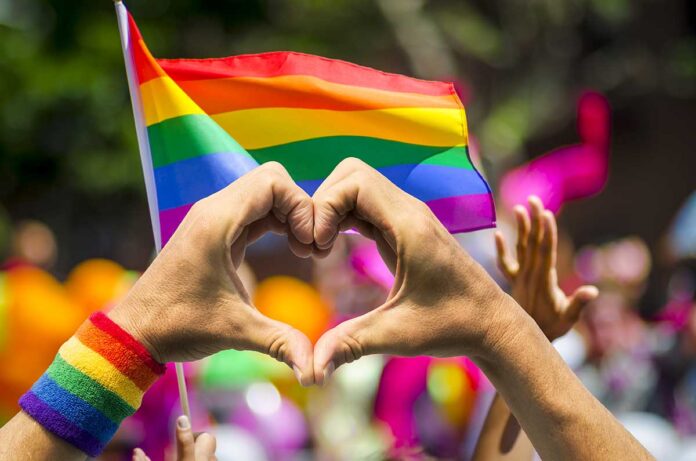When we think about grief, it’s often in the context of the death of a loved one. Whether loss is sudden or expected, grief affects us all. Yet there are forms of grief that are unique to the LGBTQIA+ community tied to a very different kind of loss. As we celebrate LGBT History Month, it is important to remember and understand how the grief process is experienced by this community of young people and to highlight the distinct support structures they need. At Uplift Center for Grieving Children, we strive to support LGBTQIA+ youth in all aspects of their grief, including death of a person, changes in their identities, community loss, and ambiguous loss. From our clinicians to our Board of Directors, we recognize that need, not only for its intrinsic importance, but because it is reflective of our own experiences as members of this community.
Elliott Wilson (he/him) – Member, Board of Directors:
When I was a child in the early 90s, I lost my uncle, Billy, to the AIDS epidemic. I don’t remember too much about him, save a few moments of fond memories. I do remember how often my family would tell me how much I was like him. “You’re just like Uncle Billy,” I would be told. I don’t think they knew how much like him I was. Neither did I until I began to realize my own sexual orientation. My prepubescent and teenage years were plagued with feelings of guilt, shame, and fear as I grappled with a future that was “just like Uncle Billy”: dead at 33, a life of boundless promise cut short. I didn’t have the resources then to help me navigate those feelings. Children, especially those in the LGBTQIA+ community, benefit from accessing resources that are grounded in their own identity. I am fortunate to have the opportunity now to support Uplift’s mission to provide that care.
Sam Middleton (she/her) – Senior Uplift Clinician:
Growing up, being in the LGBTQIA+ Community was a fad that high school girls loved to take part in. I never really took the time to consider if what I was feeling about myself was peer pressure or something deeper. When I went to college, I became friends with so many people who were confident in their identities that it allowed me to fully come into myself. The grief I felt for the time I could have been comfortable as an individual in the LGBTQIA+ Community while in high school took a lot of time to work through. In my work with Queer and Trans Youth I find that we are able to help others feel the confidence in their identities that I didn’t have, as well as offer a space and resources to help them cope with the different types of losses we cover in groups.
CJ Roseberry (they/he) – Family Clinical Care Coordinator:
When I was young, I was very self-conscious about my body. I felt that there was something different about me and that difference was in major contrast to how I was presented to the world. I struggled to find the language to define myself as it wasn’t easily accessible to me. Only when I went to college and took courses on philosophy, gender, and sexuality did the pieces come together. Between my college experiences and the support of adults already in the community, I began to find the words to describe who I truly am. Being a member of the LGBTQIA+ Community is a gift, and I am thankful for the support I got as I was trying to understand myself. The biggest part of my experience that I am grieving is not having someone like me to support me. In my work, I try my hardest to be that support for youth who don’t have someone else to help them. I work to give them the language they need to be truly themselves and a space to explore what that means to them.
Each of our stories, as different as they may be from each other, only fractionally represent the beautiful diversity found in the LGBTQIA+ Community. Nevertheless, our own grief strengthens us and focuses our resolve at Uplift Center for Grieving Children to provide support that is rooted in the celebration of our community.
Uplift Center for Grieving Children is a Philadelphia nonprofit organization that offers peer support groups for children and teens in grades K-12 who have experienced the death of someone significant in their lives. Specialty services for Spanish-speaking and LGBTQIA+ children, teens, and caregivers are facilitated by clinicians from their communities. All services for grieving children and families are provided free of charge. Annually, Uplift directly supports more than 2,500 children in Philadelphia, and supports over 1,000 caregivers, community members, and professionals in how to best support the needs of grieving children. Learn more by visiting www.upliftphilly.org.

